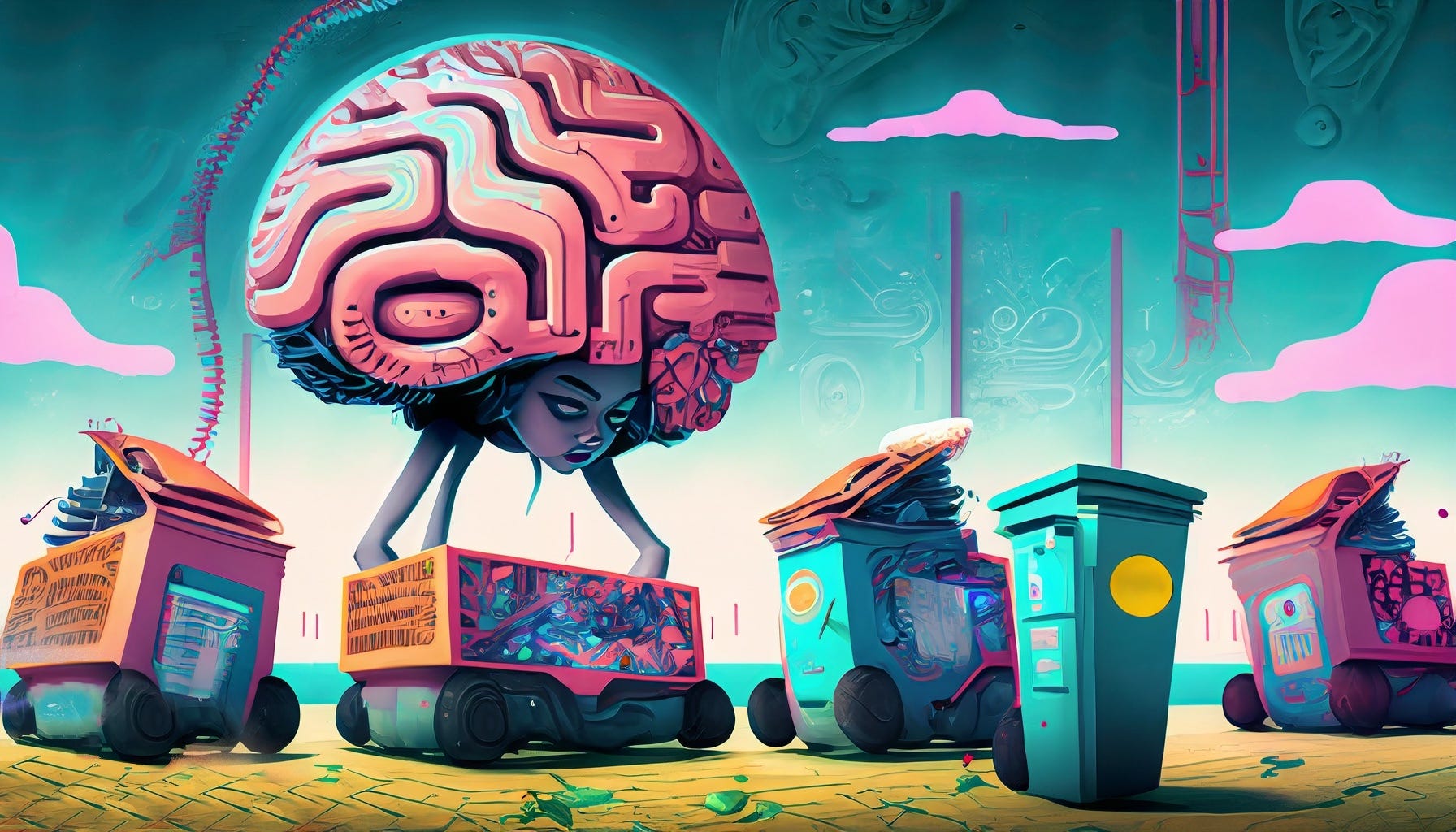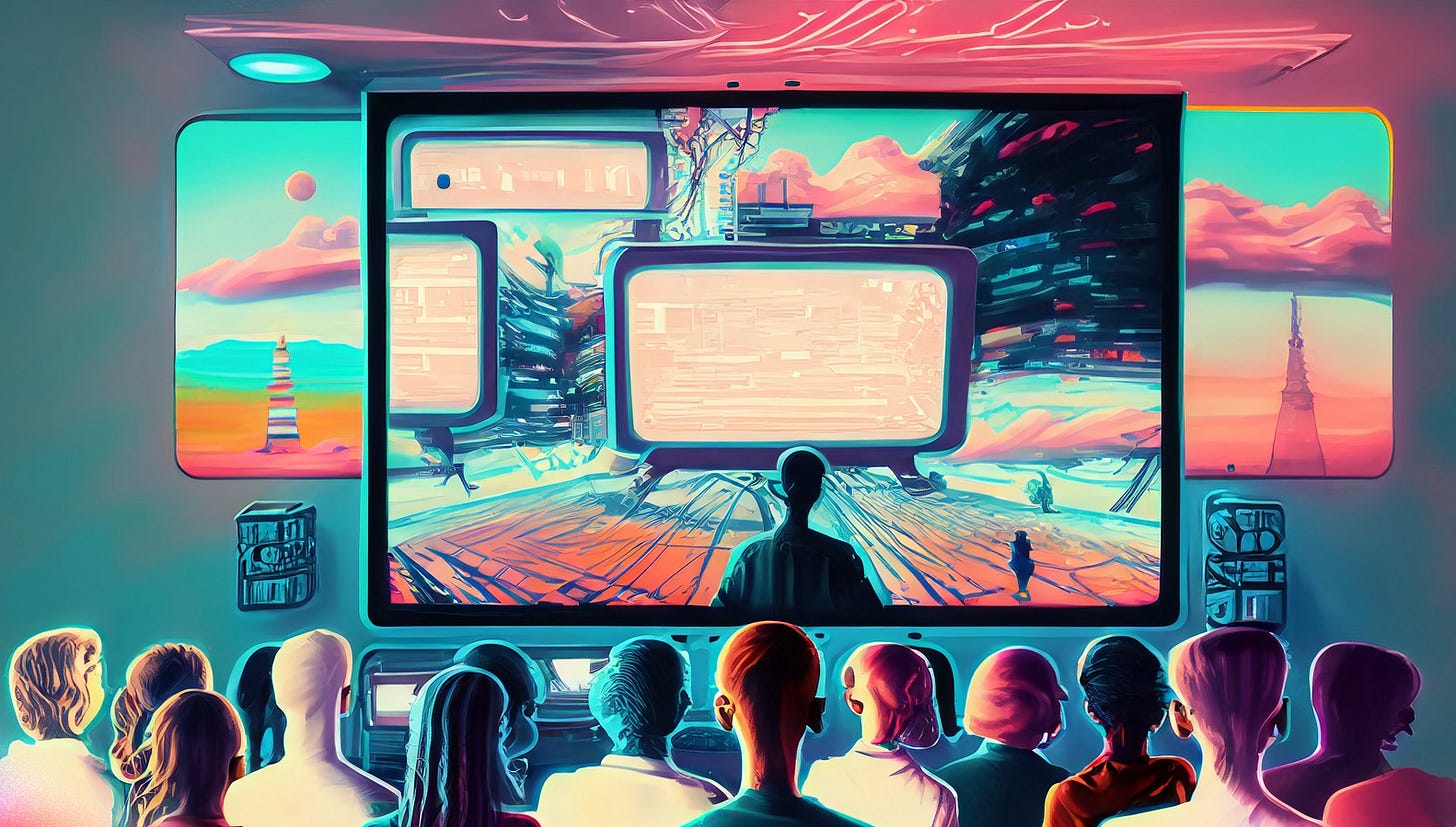Entertainment’s Nostalgia Addiction
The entertainment industry is churning out recycled relics of our childhoods. Are we really out of ideas?
The last few years have seen an uptick in film and TV adaptations, remakes, reboots, and years-too-late sequels appealing to millennials’ childhood memories. As an entire generation settles into the streaming industry’s most valuable age group, the entertainment machine has churned out nostalgia bait like Fuller House, That ‘90s Show, The Little Mermaid, and Peter Pan & Wendy.
Adaptation isn’t inherently a bad thing. Like any millennial, I can appreciate a modern take on a beloved title that retains the magic of the original. But, I’ll be honest, I’m not a big TV-watcher. From the outside, it looks like I might be missing out on a regular dose of blissful nostalgia.
Despite its continued and growing dominance, I question the long-term sustainability of the ongoing nostalgia craze. A culture fixated on the past ensures the creative output of future generations stays dormant, following a circular path instead of blazing a new trail.
TL;DR? Read my summary thread on Twitter/“X.”
A Comfortable Formula
Fresh ideas grasping for mass-audience exposure don’t stand a chance when nearly all of the top-grossing films are long-running franchises. The remake industry is teeming with formulaic subgenres, such as direct sequels, years-later sequels, and remakes in name only—all replaying the same storylines and heroes on a loop like a taped ritual.
You really can’t argue with the business case for nostalgia. It markets itself. The audience’s emotional attachment is already established. The upper limit is boundless when branding psychology works exactly as it should. Our affinity for repetition stems from the primal human behavior of pattern identification, but it’s also a curse that leaves us easily manipulated. This is why repetitive advertising is able to tap into our subconscious and plant the seed for brand recognition.
Hollywood studios are simply feeding the demand for re-manifested culture, and they’d be stupid not to capitalize on the chance. A business model built on repetition is safe, giving executives the blueprint of proven success without spending money on the brain power to generate original ideas.
However, nostalgia-based ventures targeting enthusiastic fandoms aren’t guaranteed to generate significant returns on investment every time. In fact, The Flash and Indiana Jones & the Dial of Destiny are among the biggest box-office flops of 2023, with the former leaving Warner Bros. Discovery with a $200 million loss and the latter set to cost Disney $100 million.
Despite these failures, the same Hollywood studios are unlikely to unplug the nostalgia machine any time soon.
An IP Frenzy
Intellectual property is the real throughline overseeing these trends. Why forge your own creations when you can feed off of others? What a profoundly lazy and exploitative game. They’ve effectively put our favorite characters in a cage, milking them for every last branding opportunity before ceding them to the public domain. An IP-driven business model is even more attractive as the industry faces declining box-office revenues and evolving consumer tastes, fueling the shift to streaming platforms. As a result, the success of companies like Disney heavily depends on maintaining IP dominance.
It’s worth noting that no one really knows the aggregate value of Hollywood’s IP assets, though recent business deals may offer some hints: AT&T sold Warner Media to Discovery in a $43 billion merger last year; Amazon valued MGM’s movie/TV library at $3.4 billion in its 2021 acquisition of the media giant; Disney acquired 21st Century Fox for $71.3 billion in 2019. Streaming players are also beefing up their IP, albeit with a smaller capital commitment. Netflix’s largest acquisition to date was its $700 million deal to buy Roald Dahl Story Co. in 2021.
Hollywood will run out of ideas eventually; maybe it already has. Fortunately, the free market enables the masses to demand something different when they’re ready for a change. Producer/screenwriter James Vanderbilt of Project X Entertainment said it best to Variety:
“It’s always sort of a pendulum, and we may be reaching a saturation point with [IP]. I think things are going to swing the other way, and people are going to be interested in original stuff a little more.”
In other mediums, video game producers are often churning out remakes, while IP-drunken Hollywood boardrooms increasingly see gaming as the next frontier. The public’s appetite for this expansion was tested with this year’s Super Mario Bros. Movie, which became a top-grossing box-office hit and netted $574 million. Given the incentives, the same IP mania will spread to other markets from here.
Still, banking on IP can be risky in the streaming economy, where beloved titles are locked behind a paywall. IP-heavy Disney+ has yet to turn a profit since launching three years ago, but executives foresee that changing by 2024. Disney has been focusing on building up its core brands and franchises lately, though CEO Bob Iger said in July that he wanted to dial back Marvel and Star Wars productions. The company recently took an interest in buying Comcast’s remaining 33% stake in Hulu in early-2024, which would give it full ownership control over the streaming platform. Iger sees “real value in having general entertainment combined with Disney+,” but Wall Street questions whether that bet will pay off.
An Unsustainable Course
Consider the next generation: Throughout recent history, parents and elders have always projected their glory days onto their offspring, shooing away anything fresh and subversive that threatens their dominance. We’re now repeating the same trope, running backwards in the process. With kids’ movies marketed to adults, we’re facing a continuous resurrection of uninventive storylines with no real evolution, no advancement. Remakes are often overdone, predictable, and lacking substance.
If our offspring are only exposed to the characters and heroes of our past, then their future cultural references will follow the same logical formula. Still, today’s kids aren’t exactly flocking to the movie theaters. An endless stream of TikTok content competes for their attention every day. Would they really be watching Marvel movies if adults didn’t encourage it in some way?
We are what we consume, so look in the mirror. Peak consumerism is eating the very byproducts of our past cultural relics. But perhaps there’s something uniting about that: Nostalgic entertainment succeeds at drawing hardcore fans and hate-watchers alike. Whether you prefer the comfort of familiarity or thirst for novelty, you’re there for the memories.
Meanwhile, entertainment execs are always hunting for the next nostalgia porn, leaving behind a void of true originality with each project. Enough with the recycled stories and star-studded casting. Absent fresh ideas and talent, we’re doomed to the same cycles of history.
In our washed-up future, we face an endlessly circulating loop of entertainment stagnation—constantly feeding on our nostalgia and leaving future generations our partially digested scraps.
Note: This is an opinion essay. Much like a traditional newspaper column, my newsletter is a side channel to voice my personal views and observations. It’s separate from my main gig as a journalist/reporter. You can follow my journalistic work here.
Stay tuned for more monthly essays. If you like a critical take on today’s tech-centric economy and culture, you’re in the right place. I try to focus on angles and questions no one else is talking about. Outside of Substack, you can follow this blog on Medium.






